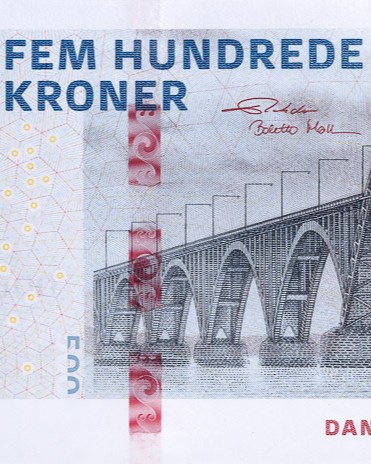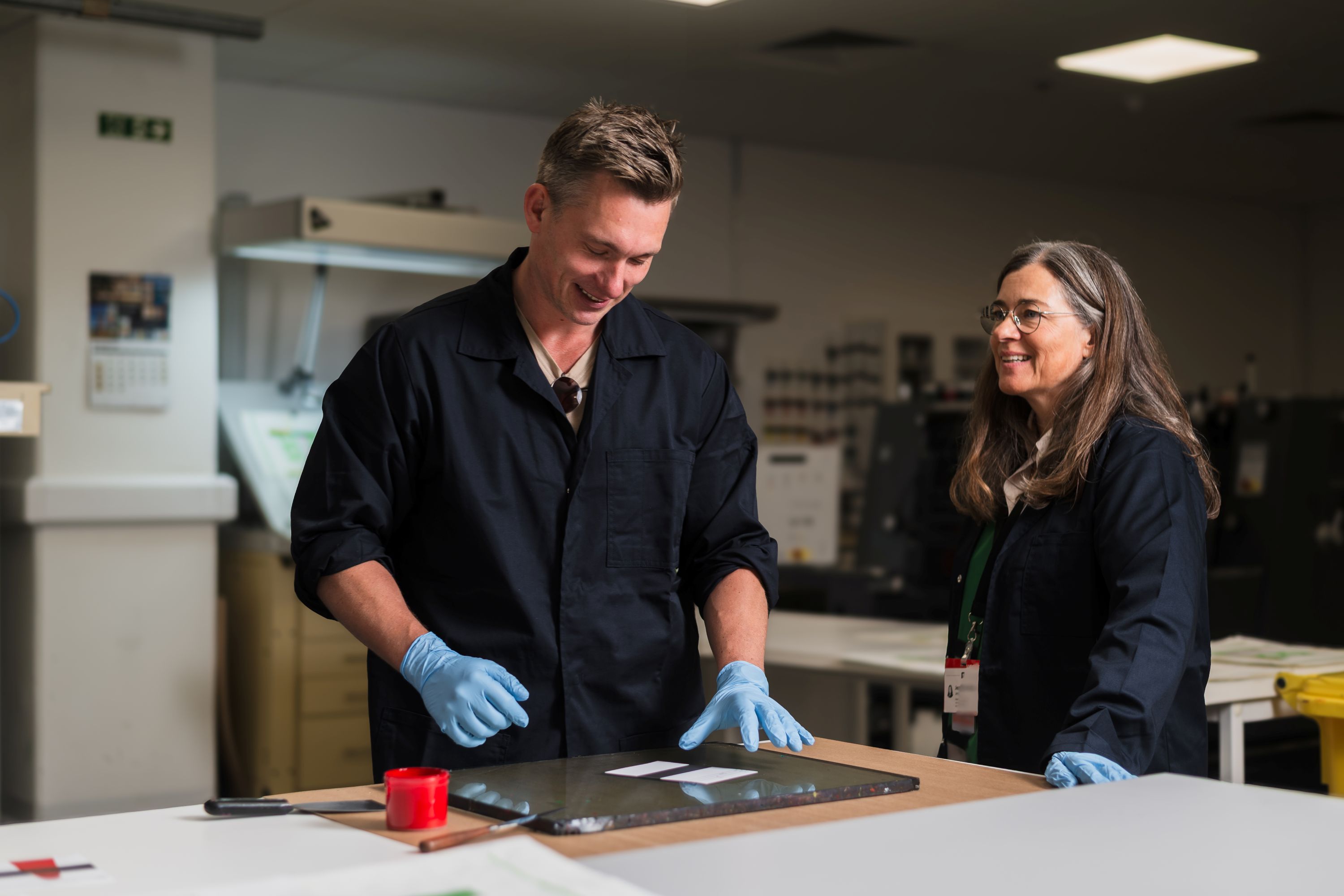Insights Banknotes
Behind the Walls of Danmarks Nationalbank – The 2028 Series
Denmark’s Next Generation of Banknotes
In the heart of Copenhagen, deep inside Danmarks Nationalbank, preparations are underway for what will become one of the most significant changes to Danish cash in decades: the launch of a completely new banknote series. The first denomination is expected to enter circulation in 2028, followed by the remaining notes. For the Danish public, it will mean crisp paper, brighter colors, and the latest state-of-the-art security features. For the Bank and its partners, it is the culmination of years of meticulous planning, innovation, and collaboration.
A Long Road to Renewal
The decision to start from scratch was driven by a desire to strengthen trust in cash and to prepare for the future of payments.

The process has involved over 40 public institutions, panels of experts, and even direct input from the public. Involving so many voices has been both a challenge and a strength.
“When you have six million people with six million opinions, you need a structured process,” Niels says with a smile. “But this is also how we ensure that the new banknotes feel like they belong to everyone.”
Four Denominations, Fresh Ideas
The upcoming 2028 Series will consist of four denominations: 50, 100, 200, and 500 kroner. The motifs will highlight important achievements in Denmark and Greenland – and the people behind them. Instead of neutral tones, the new notes will stand out with more vibrant and striking colors, which also serve as an extra layer of security.
Another key decision has been to continue with the traditional cotton-based substrate.
“The sound and feel of a crisp banknote printed on cotton paper is non-negotiable,” says Daniel Krarup Rosenstrøm, Head of Procurement and Quality. “That unique sound is distinctively linked to trust in cash. Cotton paper is a low-hanging fruit in both security and public acceptance.”

Balancing Innovation with Tradition
The Bank’s design journey began when Head of Design, Jeanette Skov Jensen, developed a concept that translated the chosen narrative – great achievements and the people behind them, as well as the Danes’ use of the ocean – into a coherent graphic framework. This concept is now gradually being transformed into print-ready banknote designs – a process marked by compromises, refinements, and rigorous quality checks. “Every detail has to work within the strict tolerances of modern printing,” Daniel explains. “Our job is to push each process to deliver on the vision while maintaining consistency and durability.”

“Go back to the basics – less is more,” Daniel remarked at the time, underscoring that clarity is just as important as cutting-edge effects.
Tradition, on the other hand, is about returning to proven features like the watermark – but enhancing them by making them larger and more visible, reversing the trend of recent decades where watermarks have been reduced and overprinted.
“There is so much potential in the watermark that we can bring forward again,” Daniel says.
Partnerships of Trust
The design tender was awarded to Crane Currency in 2024, while the printing will be tendered separately in 2026. Daniel stresses the importance of partnerships built on trust:
“The closer the relationship, the more effective the collaboration. Crane’s team has struck a very good balance in this phase – we have trust, mutual understanding, and minimal bureaucracy. That makes a big difference.”

Security in a Changing Payment Landscape
Despite the rise of digital payments, the Bank is investing heavily in its future cash strategy. Denmark has recalled the 1000-kroner banknote, a possible target for counterfeiters, further reducing the already low rate of counterfeits in the country. But the role of cash is not disappearing.
“At some point, society needs a steady baseline of cash in circulation,” Daniel notes. “You don’t take down the stairway just because you’ve installed an elevator.”
To prepare for the launch, the Bank is also developing a comprehensive communication strategy.
“We will make sure that everyone in Denmark knows about the new series – what they look like and how to use them,” Niels Kaas says. “Our goal is to engage the public with the stories behind the notes, whether it’s Tycho Brahe or polar exploration. The banknotes should be as exciting as they are secure.”
Looking Ahead
The final designs of Denmark’s new banknotes remain under wraps for now. But one thing is clear: when they arrive, they will combine vibrant aesthetics with cutting-edge security. Cotton paper, a crisp sound, bold colors, and innovative features will ensure that the Danish banknotes remain both familiar and future-proof.
“Ultimately, it’s about trust,” Daniel Krarup Rosenstrøm concludes. “Trust in the banknotes, trust in the technology, and trust in the partnerships that make them possible.”